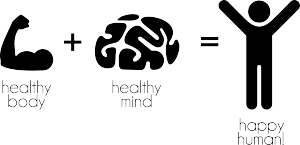Managing Academic Stress
Stress is one of the inevitable and common issues faced by students, especially in this increasingly competitive society where achieving academic excellence is generally perceived to be the ticket for an individual to become successful in life (and be the pride and joy of his or her parents). The importance of test/examination grades is thus heavily emphasised by parents and teachers alike and a student’s self-worth is largely, if not wholly, dependent on these not-so-relevant numerals and letters.

When Stress Gets the Best of Students
The pursuit of academic excellence has, without doubt, its benefits. At the individual level, students are motivated and spurred to study hard to prove themselves worthy enough to secure a good job and a great future, so to speak. They can become contributing members of the society and those possessing more scholastic capability than the rest can be singled out to fulfill key decision-making roles for the betterment of the society.
On the flip-side, an unhealthy obsession with achieving good grades can weigh students down with the excessive pressure to excel. As young individuals who are still exploring and learning, they may yet to have established suitable methods to cope with such undue academic stress. The inability to handle stress in a healthy manner will have adverse effects on the mental well-being of these students, which can consequently have negative implications on their physical health.

Numerous studies have shown how prolonged exposure to unhealthy levels of academic stress can lead to low self-esteem, performance anxiety and even depression in students. With mental illness still being a social stigma in our largely conservative Asian society, warning signs may be disregarded for fear of judgment or even go unnoticed (due to ignorance of mental health issues), which can further exacerbate these conditions.
These debilitating issues can inhibit a student’s ability to focus on his/her studies and academic performance may be compromised as a result, which actually defeats the purpose of placing such a huge emphasis on grades and test scores. At the extreme end of the spectrum, failing to meet expectations and to handle the pressure to excel can even push young individuals who had a whole future ahead of them to commit suicide, as seen in cases that made the news both locally and worldwide.
Finding a Balance
Having pointed out the issue above, it is imperative that we understand that stress is part and parcel of life and we need to get out of our comfort zone in order to grow and mature. Short-term exposure to healthy levels of stress can act as a motivator that nudges us to meet deadlines and work towards the goals that we set for ourselves. It enables students to build up their levels of resilience and emotional strength by providing opportunities for them to explore various coping mechanisms. This will ultimately prepare them to face even more challenging (and stressful) situations and adversities as they grow older and enter the society as well-adjusted adults.

How then, can we ensure that the amount of academic stress faced by students is at a healthy level and will not have detrimental consequences?
The Ministry of Education has made considerable efforts in helping to curb excessive academic stress on students, such as doing away with examinations for lower primary students and with its recent announcement to abolish the current streaming system by 2024 such that success is not chiefly determined by an aggregate PSLE score. The truth is, every one of us has different levels of stress tolerance and parents, caregivers or even teachers need to understand that there are various ways to cope with stress and such coping mechanisms can be adaptive or maladaptive. In doing so, we can encourage and guide the young and impressionable generation to deal more effectively with stress.
Different Ways to Cope with Stress
1. Distraction

Distraction is an intended coping mechanism that allows an individual to take his or her mind off a stressful issue by taking a temporary break to do something that is more light-hearted and enjoyable, such as playing sports, reading a book, catching a movie or even going for a short family getaway. This is a good way to relax, recharge and bring down stress levels amid unpleasant situations.

However, distraction can become maladaptive when a child spends too much time on certain activities, leaving him or her with little time to meet homework deadlines or revise for an upcoming test or examination. This becomes a form of avoidance mechanism, where individuals attempt to circumvent and distance themselves away from stressful issues simply by ignoring them or distracting themselves with other activities.
The undeniable fact, however, is that homework still needs to be completed and submitted and that the upcoming test or examination is not going to be magically cancelled or postponed indefinitely. Procrastination is never a solution and most importantly, it impedes a child from facing the issue and coming up with actual solutions for it.
2. Cognitive Reappraisal
Cognitive reappraisal is a more positive and retrospective type of coping mechanism whereby individuals make a conscious attempt to change their understanding and perspectives on stressful issues. By viewing them in a more positive light, it helps to moderate the effects of stressful situations.

“When life gives you lemons, make lemonade”
Reappraisal can be done by looking at the bigger picture of things and thinking about the positive and beneficial aspects of a particular situation. Rather than feeling dreadful, threatened and overwhelmed by an upcoming examination that seems to be forced upon the student, he or she can view it as a challenge and a great opportunity to display his or her knowledge as well as the hard work and effort put in. Of course, it is also important that parents do not impose unrealistic expectations of their children, which will make reappraisal rather difficult to achieve.
3. Problem-Solving

The problem-solving approach is the most effective of the various coping mechanisms, enabling the individual to directly address the root causes behind the stress he or she is experiencing and seek for solutions so as to dissipate stress.
The stress and anxiety a child feels upon an impending examination is most likely due to the fear that he or she may not fare as well as what should be expected. The root cause may be the fact that the child has not completed his or her revision and is still lacking in the knowledge of the subject that is going to be examined. The problem-solving coping mechanism will involve the child spending more time to catch up on his or her revision in order to prepare for the examination. This way, he or she will become much more ready and confident to tackle the examination, which will not seem all that stressful anymore.

To summarize, our responses to stress can vary in so many different ways. What works well for a child may not be so helpful for another individual but in general, it is actually best to just bite the bullet and get things done rather than avoid or push them off.
Instead of emphasizing so much on scores and grades, parents (and teachers) ought to let children understand the beneficial aspects of education. Once a child is engaged in learning and finds joy in it, his or her grades will eventually attest for it. Of course, all work and no play makes Jack a dull (and stressed, in this context) boy so it’s important that parents give their children the time and space to relax, have their fun and to develop other interests.
All parents would want the best for their children but they also have the responsibility to look after their well-being. It is important to take note of how these young individuals are coping with academic stress while imparting and instilling in them healthy coping mechanisms that can also be applied to other aspects of life.



